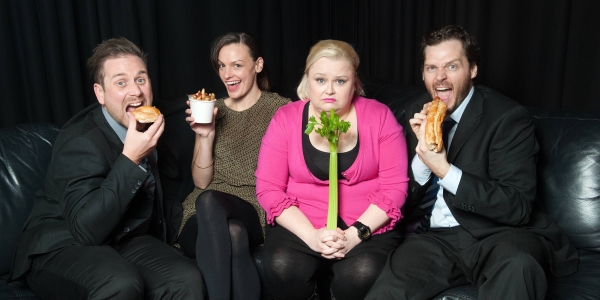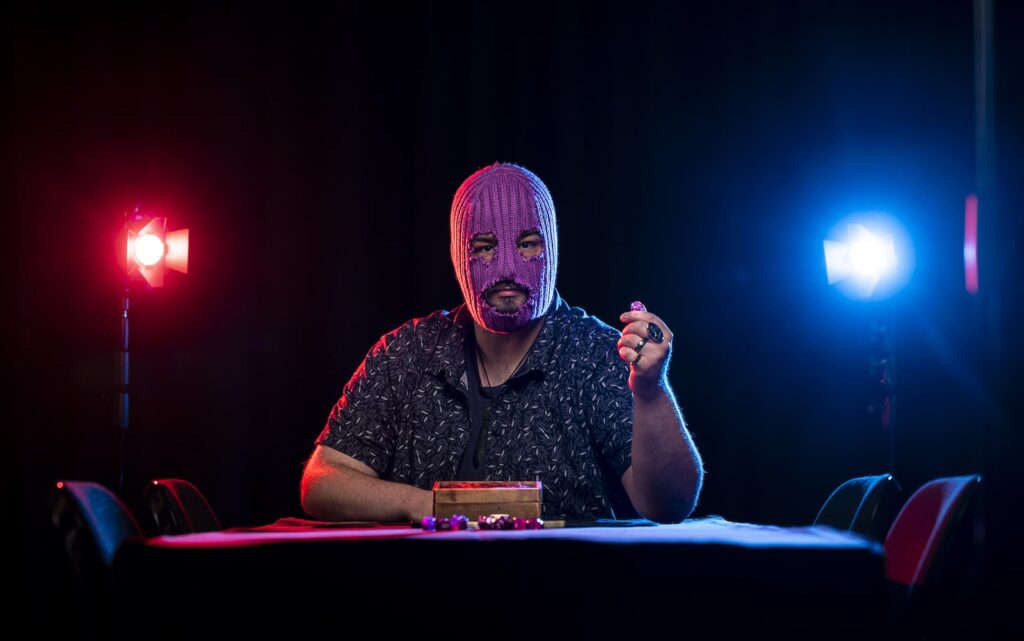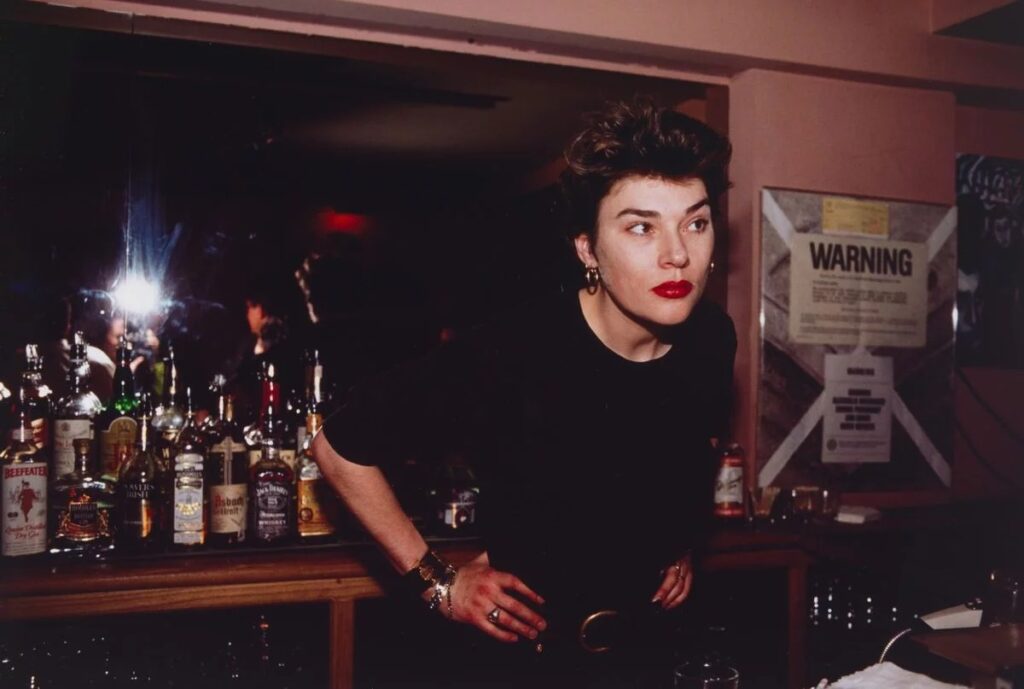“It’s quite a confronting play,” McClatchy says. “And it’s really funny; it’s a roller coaster; you’re crying one minute and laughing the next, thinking ‘I shouldn’t be laughing!’ That’s also a credit to Patrick and how he plays Carter; he’s really funny. It’s set in the corporate world, where people have this idealistic thing about looks. The play and the character have got layers. It’s got really serious moments and it’s got really nice moments. The way it’s all written, he does the journey really well. You go with Tom on his journey.” That journey involves Tom, who usually goes for a ‘shallow materialistic type of girl, being caught between pressure from his buddies and his feelings for Helen, and slowly learning to be less conscious of what others think. “Tom’s inner demons are society’s,” notes McClatchy. “If you played the characters as one-dimensional it would be horrible; you’ve got to make sure the layers are there. “
Neil LaBute’s plays are not noted for sensitive male characters or for undue political correctness. He once joked to a journalist that he called this play “Fat Pig’ because ‘Stupid Bitch’ was already taken. Is McClatchy affected by the hostility expressed towards a fat woman in the play’s dialogue? “It’s very blunt,” the actor says. “LaBute’s not pussyfooting around. I thought I’d be taking it more personally. It’s hard, when people are saying really horrible things but I’ve surprised myself ‘cos I don’t take it on board. There are people in the world like that but not everyone thinks like that. But we’re all playing characters, it’s not a reflection on me. Helen’s reactions, how she copes, are different to how I would cope. The ‘oh, I’m so fat and ugly’ is a really tired old view. Also it helps being quite comfortable with myself.”
Fat Pig debuted on Broadway in 2004. At the time Neil LaBute told The New Yorker’s David Amsden that Fat Pig was a study in weakness, “a play about Tom’s journey. Helen is the most centered character onstage. I want to know if Tom can rise above himself, if he can reconcile his public and private selves. Can he be honest? Can he be truthful? It’s an examination of what it means to love, which is really a new place for me.”
Playing the romantic lead is a nice change for McClatchy who usually finds herself in comedic roles. “I’ve done heaps of comedy and here I’m not the hilarious one; Pat gets all the one-liners.” What’s been the biggest hurdle for her in preparing for the role? ‘I guess it’s always a challenge trying to convince an audience that you’re in love with someone,” she answers. “But Lyall’s not hard to fall in love with – you throw yourself in! It’s not hard to see why Tom falls for Helen. She’s generous and caring and comfortable with herself. We’re making sure that people are not coming along and going ‘as if!’ It’s just chemistry. You don’t have a choice who you you’re attracted to, or why you’re attracted.”
The play shows how much cruelty women as well as men inflict on each other as a result of internalising shallow values and of being overly concerned with image, with what others think than with how one feels. “Women are so hard on each other and on themselves,” notes the actor. “Tom’s ex, Jeannie (Cassandra McGrath), has her own issues.”
McClatchy says she’s having a blast in rehearsals. “I’ve come into such a great group. Everyone’s so talented and the director’s really easy to talk to. We all like each other. The director (Daniel Frederikson), McClatchy says, is ‘amazing’. “He’s so great at getting the undertones with a really nice way of going in to it; there are a lot of stories in the characters’ heads and the lines are really upfront but there’s so much more to every little bit. I’ve done a lot of film and television and you usually only get one rehearsal; time’s short and you’ve got to get it filmed cos it’s so expensive. It’s so nice to sit and go through the script and read the lines over and over. I’m addicted to theatre now.” Is McClatchy planning on doing more stage work? “I’ll take whatever I can,” she enthuses.
BY LIZA DEZFOULI







